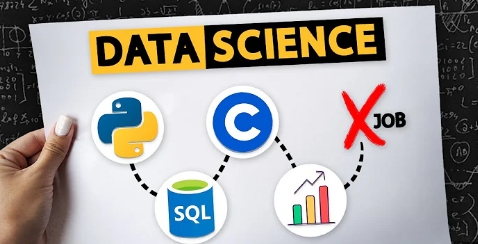Ethical Hacking Course
Thu, 10 Oct 2024

Follow the stories of academics and their research expeditions

Exploring Data Science: Key Concepts, Tools, and Applications
In today's world, data science is becoming increasingly important across many industries. Companies use data to make better decisions, predict future trends, and improve their operations. This article will explain what data science is, how to become a data scientist, the tools used in the field, and its various applications.
Data science is the process of extracting insights and knowledge from data. It involves several steps, including collecting data, cleaning it to remove errors, analyzing it to find patterns, and visualizing it to make it easy to understand. Data scientists use statistical methods, algorithms, and machine learning to uncover hidden patterns and trends in data.
To become a data scientist, you need a mix of skills and education. Typically, you should have a background in mathematics, statistics, or computer science. Learning programming languages like Python and R is essential, as they are commonly used in data science. There are many online courses and certification programs available that can help you gain these skills. Hands-on experience is crucial, so working on real-world projects and building a portfolio can greatly enhance your job prospects.
Data science plays a vital role in helping businesses make data-driven decisions. By analyzing data, companies can predict future trends and make informed choices. For example, in marketing, data science can help identify customer preferences and improve targeting strategies. In healthcare, it can predict disease outbreaks and improve patient care. Overall, data science helps organizations become more efficient and innovative.
Several tools and technologies are commonly used in data science. Programming languages like Python and R are popular for their flexibility and extensive libraries. Data visualization tools such as Tableau and Power BI help create interactive and easy-to-understand charts and graphs. Machine learning frameworks like TensorFlow and Scikit-learn are used to build predictive models and analyze complex data sets.
Data science has a wide range of applications across different industries. In healthcare, it is used for medical research, disease prediction, and personalized medicine. Financial services use data science for fraud detection, risk management, and investment analysis. Marketing teams leverage data science to gain customer insights, optimize campaigns, and improve customer engagement. These are just a few examples of how data science is transforming industries.
While data science offers many benefits, it also comes with challenges. Handling large volumes of data can be difficult, requiring powerful tools and infrastructure. Ensuring data quality and accuracy is another challenge, as inaccurate data can lead to incorrect conclusions. Additionally, there are ethical and privacy concerns related to the use of personal data, which must be addressed to maintain trust and compliance with regulations.
Data science is a powerful field that is driving innovation and efficiency across various industries. By understanding key concepts, acquiring the necessary skills, and using the right tools, individuals and organizations can harness the power of data. The future of data science looks promising, with ongoing advancements and new applications continually emerging. As we continue to generate more data, the role of data science in shaping our world will only become more significant.
Thu, 10 Oct 2024

Sun, 22 Sep 2024

Sat, 21 Sep 2024
